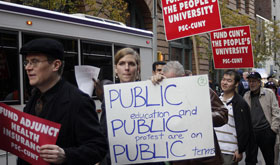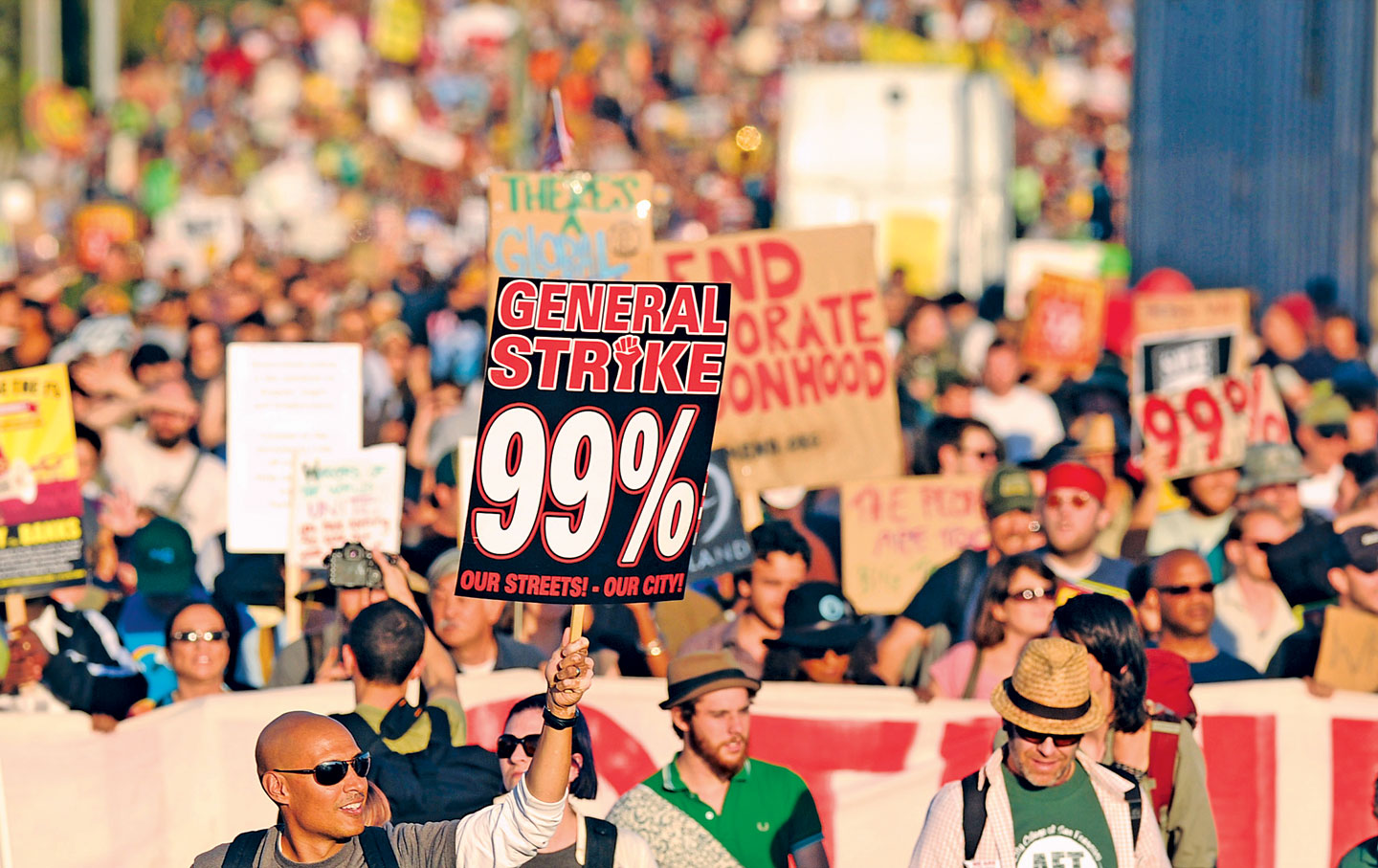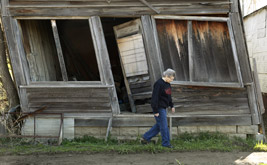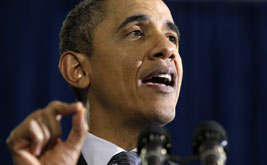
Fighting Privatization, Occupy Activists at CUNY and UC Kick Into High Gear Fighting Privatization, Occupy Activists at CUNY and UC Kick Into High Gear
As administrators declare there's no alternative to austerity and corporatization in higher ed, student Occupyers fight back.
Dec 16, 2011 / Josh Eidelson
Occupy Uconn Takes the Library During Finals Occupy Uconn Takes the Library During Finals
Students involved in the University of Connecticut’s Occupy movement didn’t take a break from protesting during finals week—they set up a permanent occupation in ...
Dec 15, 2011 / StudentNation / Krystie Yandoli

The Making of the 99% The Making of the 99%
With the Occupy movement, what started as a diffuse protest against economic injustice became a vast experiment in class building.
Dec 14, 2011 / Feature / Barbara Ehrenreich and John Ehrenreich

A Proud, Angry Poor A Proud, Angry Poor
What the Occupy movement could do for poor people—and vice versa.
Dec 14, 2011 / Feature / Frances Fox Piven

Obama Gets Occupied Obama Gets Occupied
The president has started talking like a populist. It took the Occupy movement to make him do it.
Dec 14, 2011 / The Editors
Occupy the Holidays Occupy the Holidays
Need holiday gift ideas that will warm hearts? Try these.
Dec 14, 2011 / Column / Katha Pollitt
Defeat of the XL Pipeline Is a Signal Achievement Defeat of the XL Pipeline Is a Signal Achievement
Anyone despairing over the immense power of the corporate sector to dominate world affairs should watch this video documenting the power that grassroots protest can still muster ...
Dec 14, 2011 / Peter Rothberg

99%er Champions 99%er Champions
Change takes movements on the outside and champions on the inside. This is the time to be recruiting candidates who share the convictions of the 99 percent.
Dec 14, 2011 / Katrina vanden Heuvel
Can Paul Ryan—and His Agenda—Be Beat? It’s Possible Can Paul Ryan—and His Agenda—Be Beat? It’s Possible
A new poll suggests that the pointman for the Republican assault on Social Security, Medicare and Medicaid could lose.
Dec 14, 2011 / John Nichols
Their Bread, Our Circus: How to Turn an Election Year Into Election Life Their Bread, Our Circus: How to Turn an Election Year Into Election Life
The electoral process has been occupied by the 1 percent—which means that what you hear in this “campaign” is largely refracted versions of their views, their nee...
Dec 13, 2011 / Tom Engelhardt
